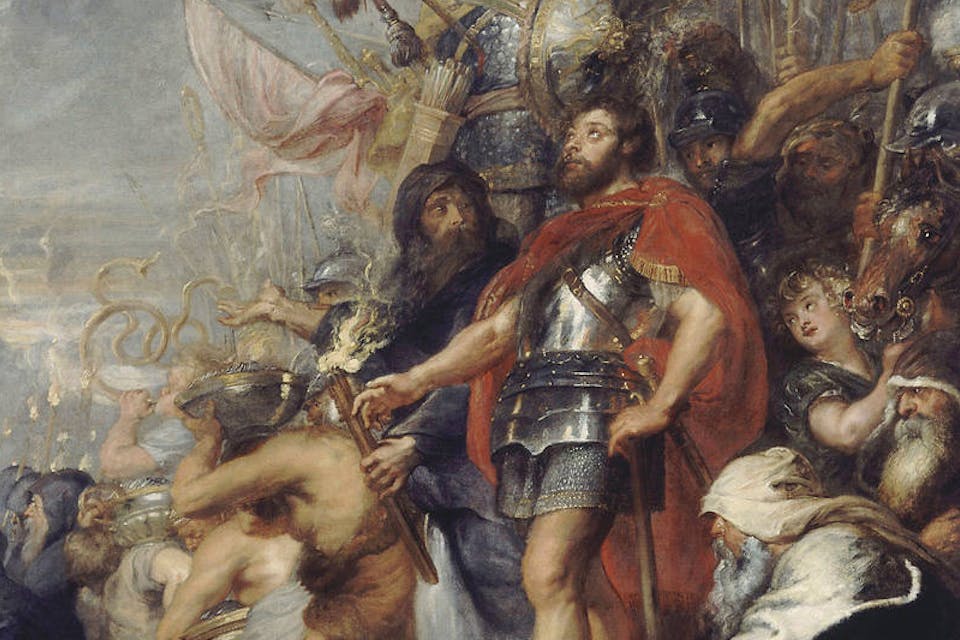
December 6, 2017
Judah the Maccabee, Judah the Mace-Man
A modest suggestion for a new way of thinking about the original meaning of the word "Maccabee."
Hanukkah, the celebration of the victory of the Maccabees, is here again, and with it the old conundrum of what the word Maccabee originally meant. Here’s a modest suggestion for a new way of thinking about it.
First, though, I should point out that the use of the word “Maccabees” for the successful 2nd-century-BCE Jewish rebels against Syrian Greek rule derives from a misunderstanding. At the time of their uprising, there were no Maccabees. They and the royal house they established were known to their Hebrew- and Aramaic-speaking compatriots in Palestine as the Ḥashmona’im, the Hasmoneans, after the revolt’s first leader, Matityahu ha-Ḥashmona’i, whose five sons headed it after his death. The source of “Hasmonean” is uncertain; most likely Ḥashmona was the name of either an ancestor in Matityahu’s family or of a place from which the family hailed.
As related by the Oxford New English Bible’s translation of the Greek text of the first book of Maccabees, itself a translation of a lost Hebrew account of the revolt written by a near contemporary: